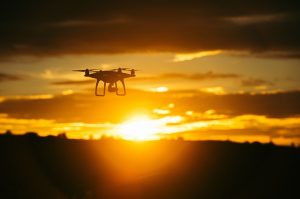 Drones are becoming more common. There are now more than 1.7 million drones registered in the United States, according to the U.S. Federal Aviation Administration (FAA). As the number of drones continues to increase, so does the risk of a collision with commercial and private airplanes. This has prompted the FAA to develop several new drone monitoring systems, which it intends to test at nearly a half-dozen airports throughout the country.
Drones are becoming more common. There are now more than 1.7 million drones registered in the United States, according to the U.S. Federal Aviation Administration (FAA). As the number of drones continues to increase, so does the risk of a collision with commercial and private airplanes. This has prompted the FAA to develop several new drone monitoring systems, which it intends to test at nearly a half-dozen airports throughout the country.
Earlier this month, the FAA revealed plans to test its new drone monitoring systems. Known as the unmanned aircraft system (UAS) detection systems, they are designed to scan the skies surrounding airports to identify drones. The FAA says it will test the new UAS detection systems at five airports, including Hancock International Airport, Rickenbacker International Airport, Atlantic City International Airport, Seattle-Tacoma International Airport and Huntsville International Airport.
In 2020, the FAA began to accept proposals for UAS detection systems. The FAA is specifically looking for UAS detection systems that are capable of identifying drones within a radius of five miles. By installing the UAS detection systems around airports, the FAA is confident that it can minimize the risk of collisions between drones and airplanes. Now that it has several UAS detection systems ready to go, the FAA is planning to test them to determine which ones work best.
In addition to UAS detection systems, the FAA is also planning to test several counter-UAS systems. A counter-UAS system is designed to disable or disrupt drones.
“UAS detection system refers to a system of device capable of lawfully and safely detecting, identifying, monitoring, or tracking an unmanned aircraft of unmanned aircraft system. UAS detection systems may be integrated into or be linked to counter-UAS system, but, themselves, do not provide the capability to disable, disrupt, seize control, or otherwise directly interfere with UAS operations,” said the FAA when announcing its UAS detection systems.
In addition to the new UAS detection systems, the FAA requires all drones to be registered. The only exceptions include drones weighing less than .55 pounds and drones that are flown under the “Exceptional for Recreational Flyers.” When registering, owners of drones must provide their name, email address, mailing address and the make and model of their respective drone. The FAA also charges a small fee of $5 per drone registration. Registrations are valid for three years, after which owners must re-register their drones.



